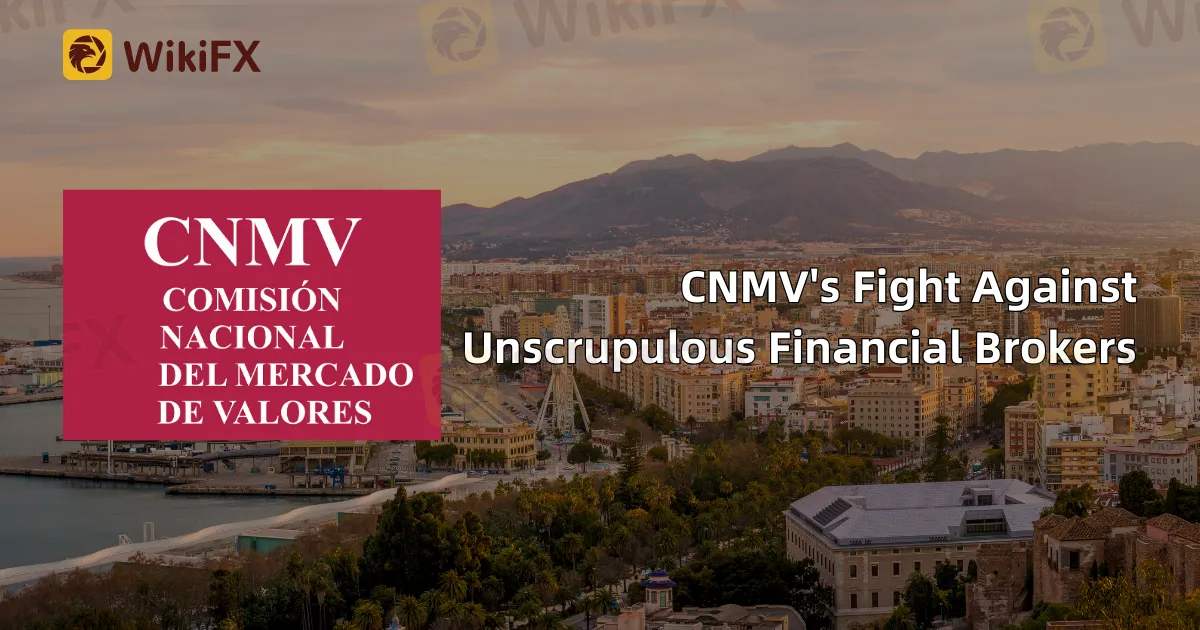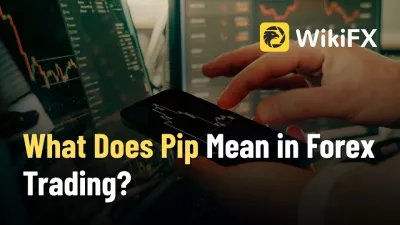Celebrate the New Year and Usher in a Safer 2026 for All Traders!
As the new year begins, WikiFX extends our sincere gratitude to traders worldwide, our industry partners, and all users who have consistently supported us.
简体中文
繁體中文
English
Pусский
日本語
ภาษาไทย
Tiếng Việt
Bahasa Indonesia
Español
हिन्दी
Filippiiniläinen
Français
Deutsch
Português
Türkçe
한국어
العربية
Abstract:The article discusses the role of the CNMV in governing Spain's stock exchanges and protecting the financial system and investors. However, it also highlights the ongoing issue of unlicensed organizations operating in the Spanish financial markets, posing risks and endangering investors.

The Spanish National Securities Market Commission, or Comisión Nacional del Mercado de Valores (CNMV), is in charge of monitoring and governing the country's stock exchanges. Its goal is to safeguard the Spanish financial system's effectiveness and openness while also defending investors and preserving market equilibrium.
Despite the CNMV's efforts, unlicensed organizations are still able to function in the Spanish financial markets, endangering investors and the financial system's image.
Entities that function without the required CNMV permission are known as unauthorized organizations. These organizations may include dishonest businesses, unlicensed agents, or investment advisers.
WikiFX as a global forex brokers regulatory inquiry app has also been receiving negative reports about the listed entities and has found out that they are unregistered and have no authorization to do financial business even with international authorities.
RANGEBITS

GLOVES INVESTS

GOLDMINES

MARKET GOLD

The potential for deception is one of the primary dangers connected to illegal organizations. These organizations have the potential to mislead investors by making inflated return promises, fast profit guarantees, or aggressive sales techniques. After taking the money from investors, they might vanish with it or use it for illegal activities, leaving investors with nothing.
Unauthorized parties can subject investors to additional risks, such as badly handled or uncontrolled assets, in addition to scams. These assets are vulnerable to poor administration, money being wasted, or even failure, if proper supervision isn't provided.
Investors should always confirm that the organizations they are interacting with are approved by the CNMV in order to safeguard themselves. You can review the CNMV's public registry of approved organizations or get in touch with the CNMV personally to accomplish this.
It is crucial that the CNMV keep up its efforts to find and punish illegal organizations. This can be accomplished by stepping up monitoring, working with other foreign law enforcement agencies, and launching public awareness initiatives.
Install the WikiFX App on your smartphone to stay updated on the latest news.
Download link: https://www.wikifx.com/en/download.html?source=fma3

Disclaimer:
The views in this article only represent the author's personal views, and do not constitute investment advice on this platform. This platform does not guarantee the accuracy, completeness and timeliness of the information in the article, and will not be liable for any loss caused by the use of or reliance on the information in the article.

As the new year begins, WikiFX extends our sincere gratitude to traders worldwide, our industry partners, and all users who have consistently supported us.

Dear Forex Traders, When choosing a forex broker, have you ever faced these dilemmas? Dozens of broker advertisements, but unsure which one is truly reliable? Online reviews are either promotional content or outdated/incomplete? Want to learn about real users’ deposit/withdrawal experiences but can’t find firsthand accounts? Now, your experience can help thousands of traders and earn you generous rewards! The campaign is long-term and you can join anytime.

Markets turn cautious as investors await the Fed’s December meeting minutes. The US Dollar stabilizes near 98.10, gold drops sharply from record highs, while GBP/USD, EUR/USD, and USD/JPY react to central bank signals.

In forex trading, a pip is the smallest unit of price movement between two currencies. It’s used to measure changes in exchange rates, calculate profits or losses, and manage trading strategies effectively.
